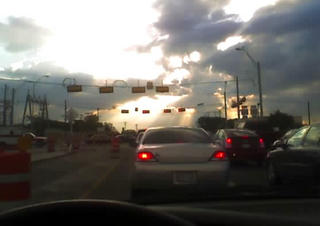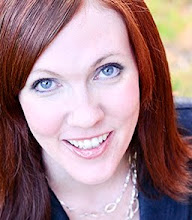Time to go to church
The comments to my last post led me to one of those "ah-ha!" moments where so many things fall into place. One of the bigger stumbling blocks I've been facing is the sheer density of the Bible. I just cannot get through that thing. I thought the way you should become a Christian is to sit down and read the Bible like a John Grisham novel and God will reveal himself to you through its words. So far the only thing that has been revealed to me is that I don't understand middle eastern Iron Age culture.
So I've been gravitating to books about the Bible (C.S. Lewis, Norman Geisler, et al). These books are the only things that have allowed me to have any understanding of the Bible (Old Testament in particular), so I've found myself hanging on each author's every word...only to realize that I am now putting my faith in some random dudes. What if they don't know what they're talking about? What if they're leading me astray? So then I go back to reading the Bible for myself, only to get bored and frustrated and put it down after a couple pages.
The whole endeavor left me with the sinking feeling that either I'm missing something or the tenets of Christianity are just too nebulous and complicated for me. I don't want to structure my religious beliefs solely around random writers' opinions, yet I can't drop everything in my life and start reading and researching the Bible all day every day.
And then I read the second comment to my last post. I think I might have actually said "ah-ha" out loud. This is the information I needed. I have avoided Christianity all my life to the extent that I even shunned academic investigations into the subject, so I didn't fully understand the distinction between Protestant and Catholic approaches, particularly regarding Sola Scriptura. I didn't realize that my mindset and approach to Christianity is a product of the (predominantly Protestant) American culture in which I live. I didn't really know that there's another way to go about it, an approach that involves discovering God and Jesus and the Bible through a religious authority rather than just opening the book for yourself.
If you had asked me what approach is more appealing to me a couple years ago I would have immediately answered Sola Scriptura (well, actually I would have laughed and said all of Christianity is silly, but if I had been open to anything it would have been the Protestant approach). I'm naturally distrustful of authority in the form of large institutions, and I would have thought that letting someone tell you what to believe is just asking for trouble.
But now that I've actually tried figuring out if God exists on my own and attempted to understand the Bible by just picking it up and reading it from beginning to end I see that I need help. To fully understand the stories and instructions of the Bible would take a lifetime of research and learning, and that's not an option for me. So I'd like to have some experts at my disposal who have devoted their lives to Christianity and can give me guidance on matters of God and the Bible. But not just anyone. It can't be someone who has kids and family and tons of social obligations but has just read the Bible a lot. I might be very interested to hear what that person has to say, but I couldn't accept them as a religious authority since they're in no better position to be an expert on the Bible than I am.
But a priest...that's interesting. That's someone who's life *is* Christianity. A priest has the time I don't to fully understand the Bible. He doesn't have PTA meetings and college savings worries and diaper duty and all the other distractions that come with having a family. He can spend his days wrestling with tough concepts, drawing on all the priests who have come before him for insight into difficult issues. I could base my beliefs on what a person like that has to say.
This is an exciting realization for me because a) it clears the way for me to make much more progress on my religious pursuit and b) I really wanted to be Catholic. I've wanted to be part of the Catholic church even before I thought I'd ever believe in God. My mother comes from a big Irish Catholic family and I feel like it's somehow in my genes (my mom actually had me baptized Catholic "just in case" -- the only time I've ever been in a church for a religious event with my parents).
So next week I am going to go to a local Catholic church that I've heard good things about. Because of major baby sleep issues and general laziness on my part I actually have not been to church yet since I started this religious investigation. In fact, I've rarely been in my life. I probably went about five times with the Southern Baptist friends I grew up around, then once after my husband and I got married (we were not married in a church), and that's when I was still in the phase of thinking that you didn't really have to believe in all that resurrection stuff to be a Christian.
So I am going to church next Sunday. It will be the first time I've set foot inside a church since I've started to think that Jesus' resurrection may have actually happened and he may have really been God incarnate. No more bringing in other books to read and yawning and staring off into space like I did when I was a kid. I'm serious now. I've been trying to resolve a lifelong spiritual crisis on my own with little luck and I need help. And I think the Catholic church, the church that my maternal ancestors have been part of for generations, might be just the thing I need.


